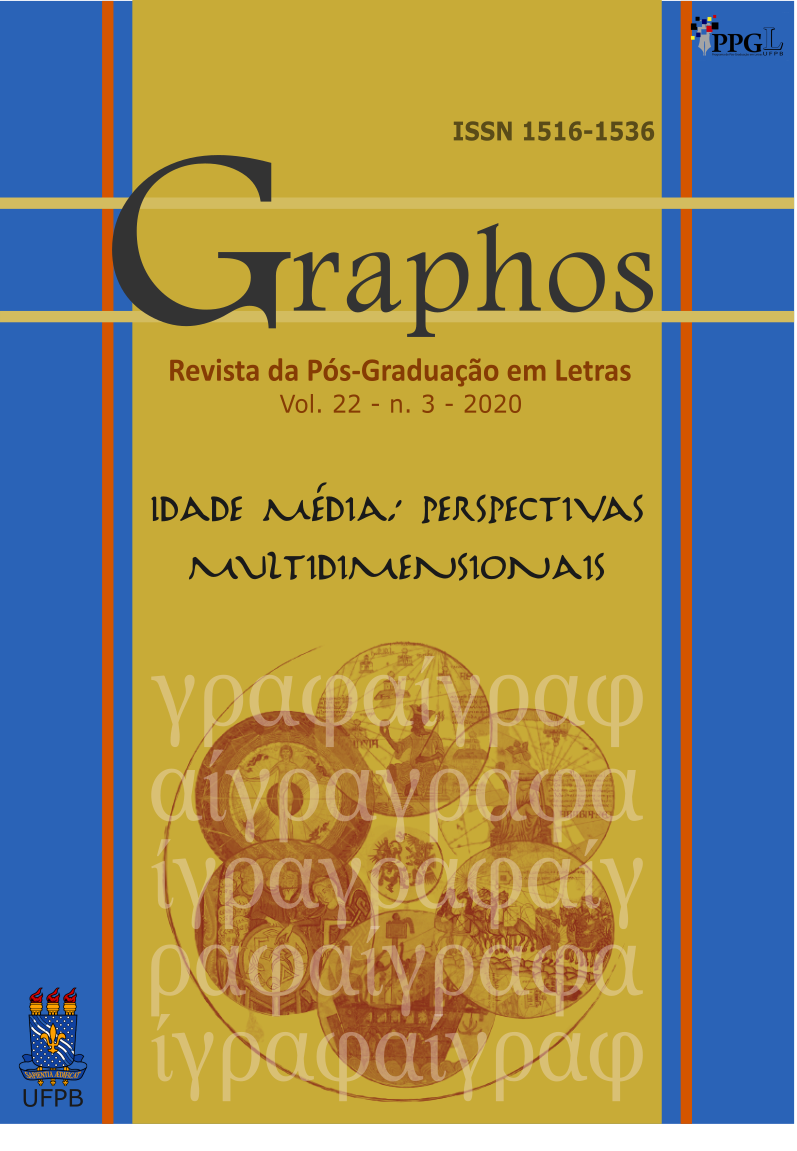Translation as (ac)knowledge(ment): Trotula’s lessons for the history of women and medicine
DOI:
https://doi.org/10.22478/ufpb.1516-1536.2020v22n3.53963Keywords:
Trotula di Ruggiero, Translation, History o0f women, History of Medicine, LessonsAbstract
The path that marks the evolution of medical and botanical knowledge is intertwined with the history of women's culture. Since the most remote times, the functions of women, predominantly focused on the management of the internal dimension of the home and the domain of the enclosed space, have given them the domain of the generation of life, fertility and the natural world, within which they became bearer of the knowledge and secrets of healing. Among the names that stand out in the history of women and medicine, Trotula de Ruggiero – who performed her activities as a doctor and teacher at the School of Medicine in Salerno, southern Italy, in the 11th century, and whose historical presence was denied by long period – seems to reach more and more notoriety in the 20th and 21st centuries, if studies and translations from different parts of the world and in different languages are considered. This paper aims to show how translation is an important tool and means for the (ac)knowledge(ment) of the work of women like Trotula. A reflection will be made based on the treatise De passionibus mulierus [On women's diseases], written by Trotula, in which she deals with aspects of women's health, disease and beauty, aiming to analyze the extent to which plant healing, the precepts of Hippocrates and Galen, the defense of hygiene and good nutrition, and the care of the organism in its relationship with the social can constitute Trotula lessons for the women of her and our time.
Downloads
References
BARBOZA, Beatriz Regina Guimarães; MATOS, Naylane Araújo; SANTOS, Sheila Cristina. Estudos feministas de tradução: um recorte de pesquisas do Programa de Pós-graduação em Estudos da Tradução (PGET-UFSC). In: Belas Infiéis, 7(2), Brasília, 2018.
BARILLARI, Sonia. Il corpo delle donne: il magistero di Trocta. In: CASARETTO, Francesco Mosetti. Il corpo impuro e le sue rappresentazioni nelle letterature medievali. Alessandria: Edizioni dell’Orso, 2012.
BLUME, Rosvitha Friesen. Teoria e prática tradutória numa perspectiva de gênero. Fragmentos, n. 39, Florianópolis, 2010.
CASTRO, Olga. (Re)examinando horizontes nos estudos feministas de tradução: em direção a uma terceira onda? Tradução de Beatriz Barboza. TradTerm, São Paulo, v. 29, jul. 2017.
CAVALLO, Pina Boggi. Introduzione. In: RUGGIERO, Trotula. Sulle malattie delle donne. Trad. Piero Cantalupa. Palermo: La Launa, 1994.
COURBIN, Alain; COURTINE, Jean-Jacques; VIGARELLO, Georges. (orgs.) História do Corpo. Vol. I. Tradução de Ephraim Ferreira Alves. Petrópolis: Vozes, 2012.
D’ARPIZIO, Daniele Mont. Dai Barbieri ai chirurghi: il “bisturi” cambia di mano. In: REDAZIONE DEL BO LIVE. Medici rivoluzionari. La scienza medica a Padova dal Duecento alla Grande Guerra. Padova: University Press, 2019. p. 19-23.
DÉPÊCHE, Marie-France. A tradução feminista: teorias e práticas subversivas: Nísia Floresta e a Escola de Tradução Canadense. Textos de História. Brasília, v. 8, n. 1, 2000.
FLOTOW, Luise von. Translation and Gender. Translation in the era of Feminism. Manchester, St. Jerome Publishing; Ottawa, University of Ottawa Press, 1997.
GODARD, Barbara. Theorizing feminist discourse/translation. In: LEFEVERE, André; BASSNETT, Susan (org.). Translation, history and culture. New York: Pinter Publishers Limited, 1990. p. 87-96.
LINKIESTA. Quesiti linguistici. La Crusca: si può dire anche “medica” e “medichessa”. In: https://www.linkiesta.it/2017/02/la-crusca-si-puo-dire-anche-medica-e-medichessa/. Acesso em 24 mai. 2020.
MADERNA, Erika. Medichesse. La vocazione femminile alla cura. 3ª ed. Sansepolcro: Aboca Museum, 2017.
MILZA, Pierre. Storia d’Italia. Milano: Corbaccio, 2006.
MOSSÉ, Claude. As lições de Hipócrates. In: LE GOFF, Jacques. (org.) As doenças têm história. Lisboa: Terramar, 1985. p. 39-55.
PORTER, Roy. Cambridge. História da medicina. Tradução Geraldo Magela Gomes da Cruz e Sinara Mônica de Oliveira Leite. Rio de Janeiro: Revinter, 2008.
POUCHELLE, Marie-Christine. Medicina. Tradução Mário Jorge da Motta Bastos. In. LE GOFF, Jacques, SCHMITT, Jean-Claude. (orgs.) Dicionário Temático do Ocidente Medieval Vol. II. Bauru, SP: Edusc, 2002. p. 151-165.
RUGGIERO, Trotula di. Sobre as doenças das mulheres. (Tradução e organização: Alder Calado, Karine Simoni e Luciana Calado Deplagne. Florianópolis: UFSC/DLLE/PGET, 2018.
TYMOCZKO, Maria, GENTZLER, Edwin. Translation and Power. Amherst/Boston: University of Massachusetts Press, 2002.
VENUTI, Lawrence. A invisibilidade do tradutor. [1986] In: Palavra 3. Trad. Carolina Alfaro. Rio de Janeiro, 1995, p. 111-134.
VENUTI, Lawrence. Escândalos da tradução: por uma ética da diferença. Trad. de Laureano Pelegrin et al. Bauru: EDUSC, 2002.
Downloads
Published
Issue
Section
License
Copyright (c) 2020 Karine Simoni

This work is licensed under a Creative Commons Attribution 4.0 International License.







